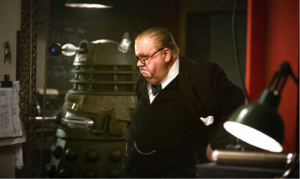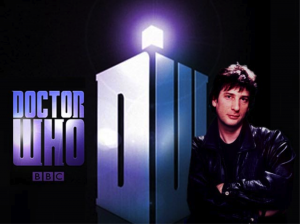
By Maria Judnick
People on public transit wearing over-sized, whimsically-striped scarves; coworkers who in the mid-2000s became Saturday night shut-ins because there was “some show” on the BBC they absolutely needed to catch; license plate covers referencing some other vehicle called a TARDIS. These are not isolated incidents; in fact, they’re part of the more-than-50-years-in-the-making British cultural phenomena that began on Saturday, November 23, 1963 (the day after the assassination of JFK) with the television debut of Doctor Who.
While the show’s extensive history may overwhelm some wannabe viewers lured in by the recent #newtoWho Twitter campaign, here are seven reasons to give Doctor Who a chance:
1. The show is aimed at the casual viewer: With more than 600 episodes from the original 1963-1989 “classic” Doctor Who, new fans might feel that it's impossible to catch up. Luckily, the current show runner, Steven Moffat (himself a die-hard childhood Whovian), purposely tries not to rely too extensively on Who history. While each season under Moffat tends to feature elaborate puzzles that aren’t explained until much later in the series, each episode’s arc generally stands alone. Unlike shows like Lost or The Wire, which are so intricately crafted that viewers practically need to take notes, Doctor Who often builds in backstory and explanations for any characters or plot devices viewers need to recall.

2. It’s more than just sci-fi: Despite the fact that Doctor Who features aliens of more variety than you’d find even on the craziest mushroom trip at Burning Man, the show isn’t just focused on gaining science fiction credibility. Because the Doctor travels through both space and time, on any given week, his adventures often take a historical turn. In recent series, the Doctor has met the likes of Agatha Christie, Vincent Van Gogh, Winston Churchill, and Queens Victoria and Elizabeth I, offering amateur historians gleeful hints of alternate world timelines. And history is just the tip of the iceberg; the Doctor could experience just about every storyline imaginable because he literally has the universe, in all its horrific, dramatic, and mysterious vastness, to explore.


